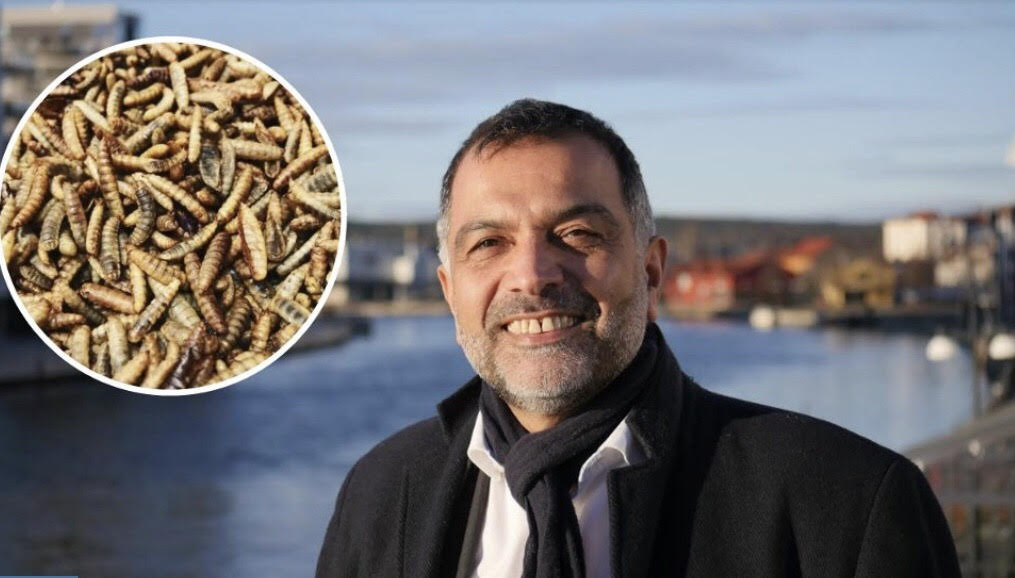The environmental challenges of conventional fish feed production are well known. The usage of plant based matter in such products is not seen as envorinmentally beneficial. Many scientific studies have shown that insect based flour can be a part of a solution to this very problem, mainly because it is rich in protein and amino acids like the ones found in fish based flour products.
Our goal is to produce sustainable insect products as feed for fish.
The board of Flying Feed Fredrikstad and our partners consist of researchers and scientists with a broad and varied background. The company is now linked to leading academic environments nationally and internationally. Many of the people involved, work with circular economy and food production issues on a daily basis.

We are confident that we have the links, network and team to take on the practical, academical and theoretical tasks to build a future oriented and knowledge based company.
The combination of waste management, feed production and fish farming is future friendly and sustainable. Local knowledge is also very important to utilize nearby resources in building the production line that we are currently working on. Flying Feed Fredrikstad is combining this knowledge with our network outside of Fredrikstad and the mix is now proving to work well.
This project has it’s background from several other previous and ongoing research projects at NIBIO, NMBU, Sintef and «Havforskningsinstituttet» concering insect production and new sources of protein.
Østfoldforskning has a strong position within the management of organic waste and biogas production. We see obvious synergies between that, and insect production/aquaculture. COWI in Fredrikstad is working with bio-based businesses both through it’s mother company in Denmark and in Norway. We are currently in contact with all these potential resources.
Our project is also in harmony with the Norwegian national bio-economical strategy that was launched in 2015, and the ongoing circular economy project.
